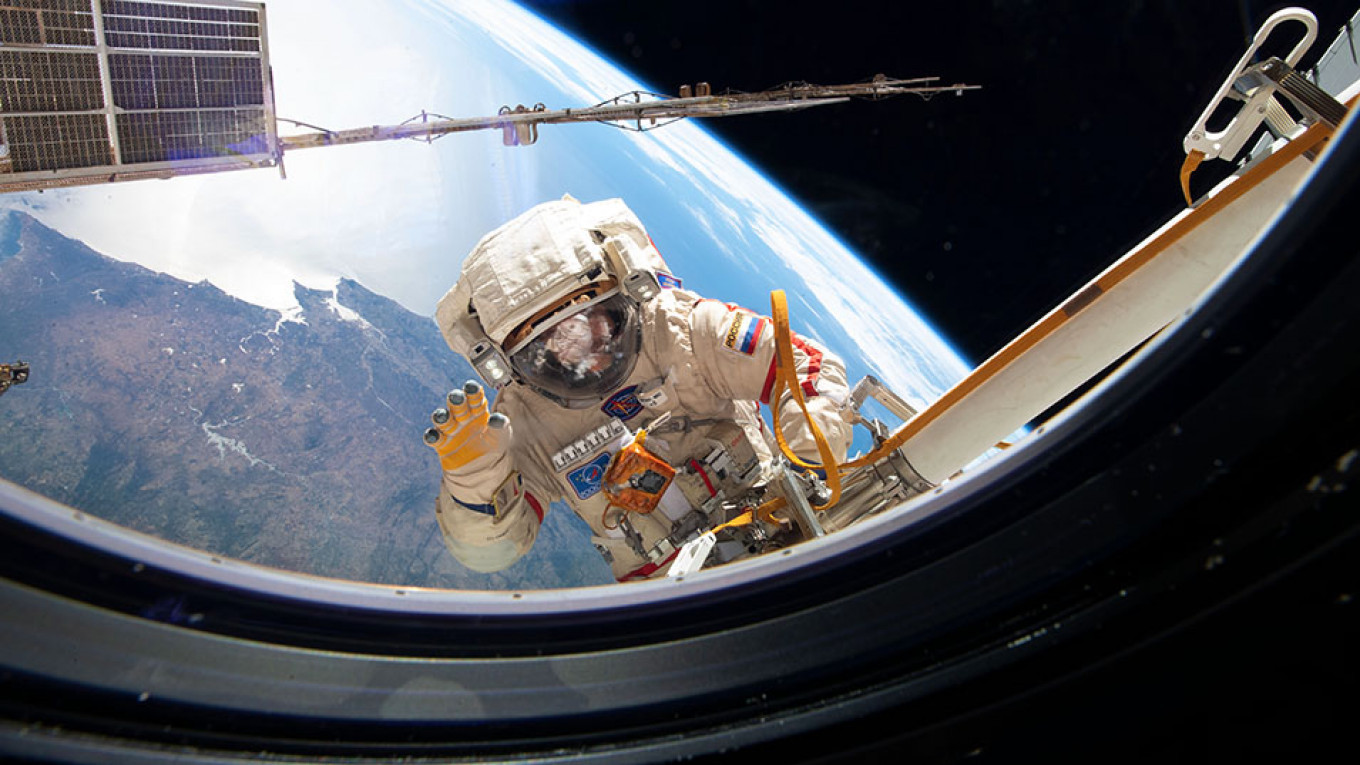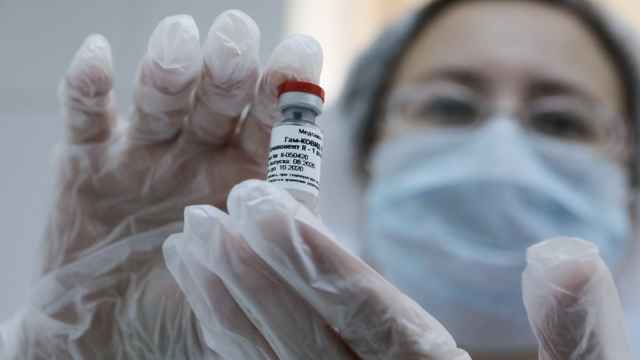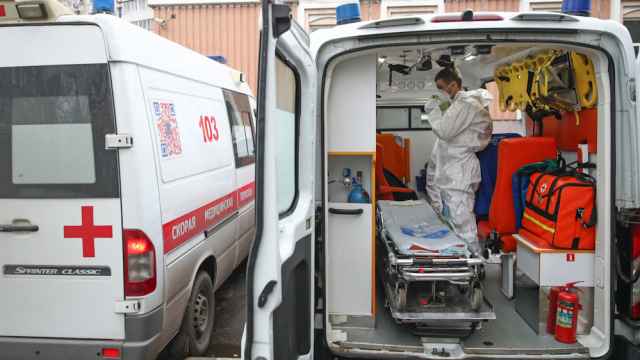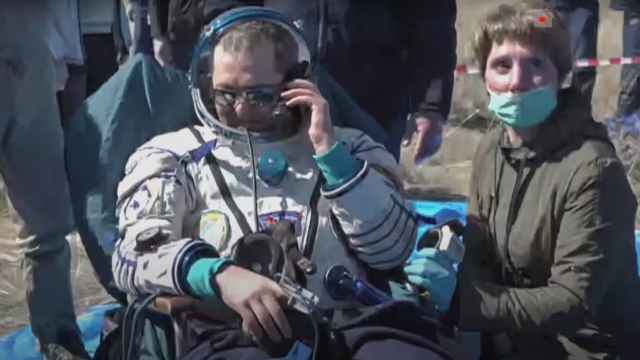Russian cosmonauts set to blast off for the International Space Station said on Thursday it was too early to get a coronavirus vaccine touted by President Vladimir Putin.
"I'd personally say that I would not get vaccinated because I tread very carefully on this issue," said Sergei Ryzhikov, the 46-year-old leader of the next expedition to the ISS in October.
He and other cosmonauts wore face masks at the Star City training centre outside Moscow during an online news conference.
The cosmonaut's comments came after Putin touted Russia's coronavirus vaccine developed in record time and named "Sputnik V" after the Soviet-era satellite that was the first launched into space in 1957.
"As soon as the vaccine is tried and tested and proves its reliability then a decision will be taken to recommend that cosmonauts get vaccinated," said fellow cosmonaut, 37-year-old Sergei Kud-Sverchkov.
He said the decision was down to the doctors in charge of cosmonauts' healthcare including immunisation.
Russia has raised concerns among Western scientists by announcing that its vaccine had received approval before full clinical trials have been completed.
While the vaccine showed promising results in early trials, Russia has not yet completed the final phase of clinical testing, in which large numbers of people receive either the vaccine or a placebo.
Nevertheless, Russia has already vaccinated high-profile officials including Defence Minister Sergei Shoigu and Moscow Mayor Sergei Sobyanin. Putin has said that one of his daughters was vaccinated, suffering only a mild reaction.
Astronauts routinely undergo a quarantine period before blasting off to space.
"The International Space Station is the safest place now," Ryzhikov added.
"We don't have to be vaccinated because we strictly follow all sanitary rules."
A Message from The Moscow Times:
Dear readers,
We are facing unprecedented challenges. Russia's Prosecutor General's Office has designated The Moscow Times as an "undesirable" organization, criminalizing our work and putting our staff at risk of prosecution. This follows our earlier unjust labeling as a "foreign agent."
These actions are direct attempts to silence independent journalism in Russia. The authorities claim our work "discredits the decisions of the Russian leadership." We see things differently: we strive to provide accurate, unbiased reporting on Russia.
We, the journalists of The Moscow Times, refuse to be silenced. But to continue our work, we need your help.
Your support, no matter how small, makes a world of difference. If you can, please support us monthly starting from just $2. It's quick to set up, and every contribution makes a significant impact.
By supporting The Moscow Times, you're defending open, independent journalism in the face of repression. Thank you for standing with us.
Remind me later.






